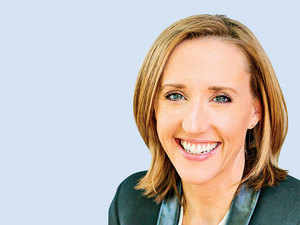 Agencies
AgenciesWhat is unique about the lives and world of rich in today's era?
First, I would say there is no such thing as "the rich" as a coherent entity. There are many different cultures of rich people. I interviewed 50 wealthy parents (most in the top 1%, some in the .1%) in and around New York City and so I can only speak about that. But the main thing I found that I think is distinctive from earlier eras in the US is that these people are often uncomfortable with being wealthy. There are a lot of stigmatized images of rich people, especially women, as greedy, lazy, self-indulgent and so on. The people I interviewed did not want to identify as "wealthy" or "rich." It is more acceptable to be wealthy if you can interpret yourself as working hard and consuming prudently. In this way they can be both "good rich" people and seem "middle class."
How have the markers of being rich changed between the 20th and the 21st century?
The people I interviewed--relatively liberal, highly educated New Yorkers--are not eager to flaunt their wealth. They tend to downplay their income and their spending, and they talk about not wanting to be ostentatious. So they prefer that their wealth not be loudly "marked" in the world. Among wealthy people themselves they probably use fairly similar markers to recognize and differentiate themselves; their homes, their taste, their clothes, how they spend their leisure time, and their philanthropy are some markers.
How has the relationship between rich and their wealth, consumption, materialistic possessions changed?
I think at one time in the US we had a more aristocratic upper class which did not mind being identified as such, and did not mind being visible as wealthy. I think at least some of these people thought that they were "better" than those in lower classes just by virtue of belonging to this class. Now it is less common to see this kind of discourse--people talk more about meritocracy (mostly through working hard) and diversity, and it is frowned upon to see yourself as better than others. This is something the people I interviewed are very concerned about for their children--that they don't think that they are "entitled" to more just because of their class advantages. They need to work for it, not be materialistic, give back to the community in some way, and be polite to others no matter what their class.
I also think that in the past it was more taken for granted that wealthy women would stay home with children and not work for money. Now, many of these women are very highly educated, with advanced degrees in law and business and other fields. The women I interviewed who did not work for money were conflicted about it, sometimes not feeling worthy of their lifestyles because they did not earn money, and sometimes conflicting with their husbands over spending and other issues.
Your book talks about how rich see themselves as middle class. Is this more about managing perception - within one's own self and to the outside world?
I think these people are working to think of themselves in particular ways in order to deal with not feeling guilty about having so much. One way they do this is by imagining that they are middle class, which some of them do by focusing on those who have as much or more as they do, even though of course there are many more people who have less. This makes it easier to feel not rich. Not everyone does this--some people are more open about the fact that they are wealthy--but everyone I talked with implicitly alludes to middle class values such as hard work and disciplined consumption, as well as trying to raise children who are not "entitled."
Can you throw some light on how the rich see the unequal world, the have-nots and manage their conscience to live a good life?
I think many of the people I interviewed are troubled by inequality. In part, they try not to think about it, and they imagine there is nothing they can do about it. They also avoid talking about it. This is one reason we have a taboo on talking about money and class in the US--it makes it easier for the wealthy not to recognize their advantages explicitly. They also try to justify their privilege by thinking of themselves as "good rich"--again, hard workers, prudent consumers, and nice people who give back, who raise children who are also "good people." The people I interviewed, with a couple of exceptions, don't typically blame the poor for their poverty, but of course many wealthy people do this also. Again it is not possible to say how "the rich" see anything; there are lots of variations within even the small group I studied, let alone within the US or around the world.
(Catch all the Business News, Breaking News, Budget 2024 Events and Latest News Updates on The Economic Times.)
Subscribe to The Economic Times Prime and read the ET ePaper online.
Read More News on
(Catch all the Business News, Breaking News, Budget 2024 Events and Latest News Updates on The Economic Times.)
Subscribe to The Economic Times Prime and read the ET ePaper online.










 Get Unlimited Access to The Economic Times
Get Unlimited Access to The Economic Times
